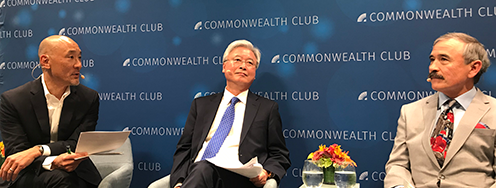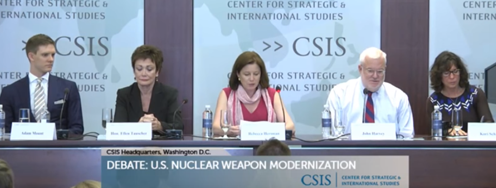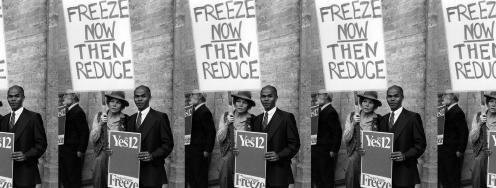Fighting City Hall's Nuclear Weapons
Kansas City wants to build nuclear weapons. Some of its citizens don't think that's such a good idea.
Kansas City is about to become the first city in the nation to own a nuclear bomb factory. For over 60 years, the U.S. has produced non-nuclear parts for nuclear weapons at a facility - commonly called the "Kansas City Plant" - in the Bannister Federal Complex in Kansas City, Missouri. With the building aging, the federal government is preparing to move the plant's operations to a new facility 10 miles down the road.
This time, Kansas City itself will own the new building, financed by a new municipal bond. But some taxpayers oppose the scheme on budgetary, policy and environmental grounds.
The Rube Goldberg plan is for the taxpayer-funded Kansas City Planned Industrial Expansion Authority to lease the project to a development company, which will sublease the project to another company, which will then sub-sublease the project to the federal government. After 20 years, the plant will become the property of the original lessee, CPZ Holding LLC, a private corporation.
The initial subsidy for the plant is $815 million in municipal bonds. But Nuclear Watch of New Mexico estimates that the total cost will be over $4.5 billion over the next twenty years.
Although it is too late to stop construction on the plant, some Kansas Citians are proposing alternative uses to bring sustainable jobs, not bombs, to the area.
Kansas City Peace Planters, a local grassroots organization, circulated a petition to convert the bomb factory into a renewable energy facility.
Rachel MacNair, the petition coordinator, says,
Here's the especially scary part: why do we need new weapons components when we're cutting down the number of nuclear weapons? Answer: It's not to add to the stockpile, but to "modernize" by replacing old weapons with new ones. The old ones are big and so they argue it's not so believable they'll be used. If they have some more "modern," smaller ones, then they're supposed to be a better deterrent because it's more credible that they would actually be used.
The petition garnered enough support to submit the petition to a committee of the City Council, which voted against the proposed change.
The full Council will vote on the ordinance June 16. If the Council, as predicted, decides not to adopt the proposal, it will be put to a citywide vote on the November 8 local election ballot.
In the meantime, Kansas City Peace Planters is planning speeches and debates for early fall 2011 and asking people around the nation to show their support through an online petition.
Their campaign should be an early indicator of whether the effort to cut government spending extends to cutting out-dated nuclear weapons programs.



